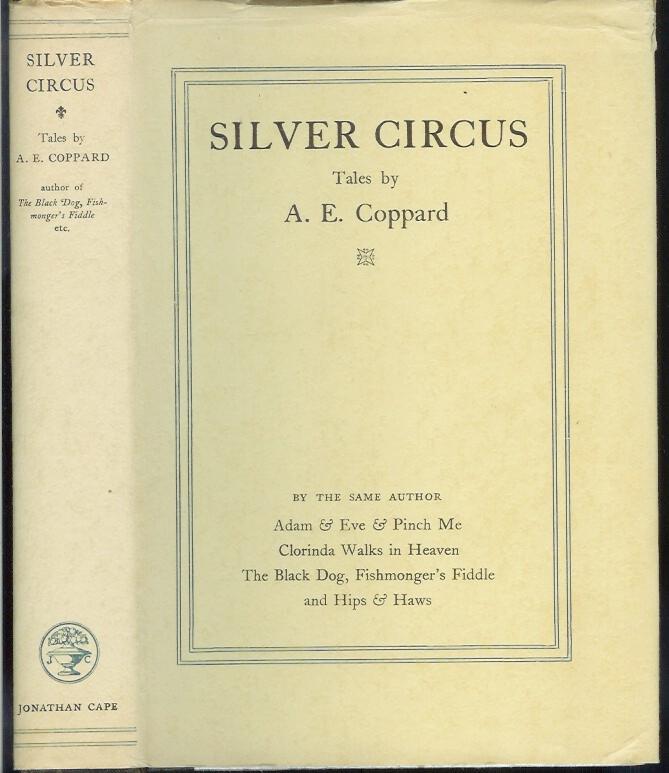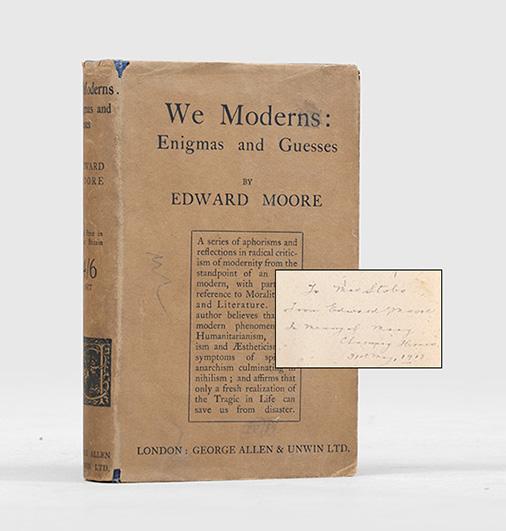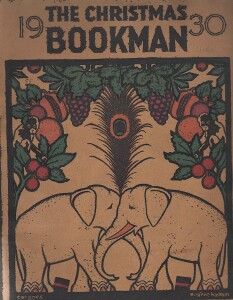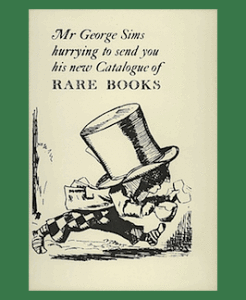Ralph Chubb, Woodcuts ( Andrew Block, 1928). One of 200 copies. Small 4to. Original lilac marbled boards. Slightly marked, but a nice copy. £5.00. Today £200 +
There has been a revival of interest in this poet and illustrator in recent years. Back in the early seventies he was hardly known beyond a select circle of admirers, hence the low price. Chubb ( 1892 – 1960), like his contemporary E. E. Bradford, a parish priest in the Fens, is now a gay icon whose extraordinary life and celebration of ‘ lads love ‘ has attracted many to his work, which has echoes of William Blake, though his verse is nothing like as inspiring. Chubb’s home in Berkshire is still there and the shed in which he printed his books and pamphlets also remains. See a previous Jot for a fuller account of his life and work. It is unlikely that there will ever be a blue plaque to him somewhere in his native Harpenden.
A. E. Coppard, Silver Circus (Cape, 1928) Special edition of 125 copies on hand-made paper, signed by the author, bound in full velum with a green leather lettering piece, gilt. Fine copy of this scarce book. £10.00. Today £200 +

A hundred years ago, at the advent of the craze for modern first editions, Coppard was King of the Pile. Articles were written on him and his rather enigmatic short stories. Most of his books seemed to be printed in tasteful ‘ special editions ‘. All the experts agreed that here was an author worth investing in. Though his reputation waned somewhat in the late ‘thirties, he was still admired in the late sixties, when some of his short stories were televised. Fast forward to the noughties and Gen Z has blank faces at the mention of his name. Still, for all this, he is still arguably the most famous person to hail from Folkestone.
Note: Sims offered five other copies of Coppard titles, nearly all ‘ special ‘ editions, priced at between £7.00 and £15.00. Don’t expect them to rise much in value in the future, though.
Frances Cornford, Travelling Home and other poems. Illustrated by Christopher Cornford. ( Cresset Press, 1948) . First edition. Fine in d.w. £1.50. Today £20
Baron Corvo, “ Lytel Seynt Hew”. Contained in The Universal Review edited by Harry Quilter, September- December 1888. Pp 585 -591 contain this poem by the “Rev. Frederick Rolph”, each page being decorated by one of his drawings. Thick 4to, original red cloth, gilt. £12.50.
C. Day Lewis, Ten Singers. An Anthology. Fortune & Merriman, 1925. First edition. The Poet Laureate’s first publication—a scarce anthology published in the early days of the Fortune Press. Printed on hand-made paper and bound in hand-made paper wrappers. Fine Copy. £7.50. Today £ 25.
Continue reading


